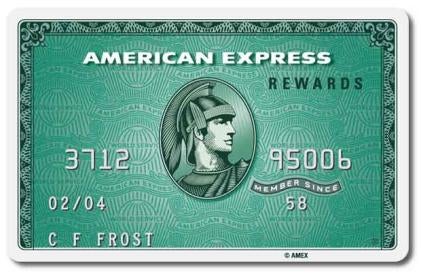After a seven-week bench trial in an enforcement action by the U.S. Department of Justice (DOJ) and 17 state attorneys general, U.S. District Judge Garaufis (Eastern District of New York) held that American Express Co.’s (Amex’s) “anti-steering” rules (Non-Discrimination Provisions or NDPs) are an unreasonable restraint of trade in violation of Section 1 of the Sherman Antitrust Act. The NDPs in Amex’s agreements with merchants prevent merchants from attempting “to induce or ‘steer’ a customer” from paying with non-AmEx credit cards by, for instance, offering discounts or incentives to customers paying with other cards, even though “the cost of [such] transaction[s] [would likely] be lower for the merchant.” At bottom, the court’s holding centered on its conclusion that “these NDPs create an environment in which there is nothing to offset [Amex’s incentive] to charge merchants inflated prices [to process transactions, which] results in higher costs to all consumers who purchase goods and services from these merchants.”
In the initial step of its rule-of-reason analysis—DOJ’s burden to demonstrate that the NDPs “have had an ‘adverse effect on competition as a whole in the relevant market,’” which may be met by “establishing that [Amex] had sufficient market power to cause an adverse effect on competition”—the court focused first on market definition, then market power and anticompetitive effects.
Regarding the relevant market, Amex argued that it includes both debit and credit cards. It distinguished United States v. Visa, where the Second Circuit held that credit cards and debit cards are distinct relevant markets, in light of “the dramatic growth in customers’ use of debit cards” since that 2003 decision. The court disagreed, finding that “debit cards have not become reasonably interchangeable with [credit] cards or network services in the eyes of credit-accepting merchants, who are the relevant consumers in this case.” Rather, the court employed a market definition comprising only credit cards, where AmEx holds a 26 percent share. The court did, however, reject DOJ’s argument for an even smaller submarket, i.e., credit card services for only travel and entertainment merchants (where Amex’s market share is even higher), based on its finding that DOJ failed to show that credit card companies are able to charge discriminatory prices to those merchants.
The court went on to conclude that “Amex’s NDPs have adversely affected competition in the [relevant] market, and [Amex] possesses sufficient market power to cause such effects.” The court found that Amex “enjoy[s] significant market share in a highly concentrated market with high barriers to entry, and are able to exercise uncommon leverage over their merchant-consumers,” for instance by “imposing significant price increases . . . without any meaningful merchant attrition.” The court also found actual adverse effects on interbrand competition (i.e., that the NDPs “render[] low-price business models untenable, stunt[] innovation, and result[] in higher prices”), reasoning that the NDPs “deny[] merchants the opportunity to influence their customers’ payment decisions and thereby shift spending to less expensive cards[, such that the NDPs] impede a significant avenue of horizontal interbrand competition in the [relevant] market.”
In the second step of its rule-of-reason analysis—Amex’s burden “to offer evidence of the pro-competitive effects of their agreement”—Amex argued that its NDPs “are reasonably necessary (1) to preserve [their] differentiated business model and thus [their] ability to drive competition in the network services market, and (2) to prevent merchants from ‘free-riding’ on [their] investments in [their] merchant and cardholder value propositions.” The court ultimately disagreed, holding that “these purported justifications do not offset, much less overcome, the more widespread and injurious effects of the NDPs on interbrand competition in the relevant market.” Accordingly, the court found a Section 1 violation without reaching the third step of a rule-of-reason analysis (DOJ’s potential burden “to prove that any ‘legitimate competitive benefits’ proffered by [Amex] could have been achieved through less restrictive means”).
Despite holding the NDPs illegal and recognizing that, “[i]f necessary, the court will itself craft an injunction that implements the Decision and renders [Amex’s] contractual provisions compliant with the antitrust laws,” the court expressed reluctance to “intervene in [this] highly complex and high-stakes industry” by requiring “wholesale abandonment” of Amex’s merchant regulations. So, the court—averring that “the parties themselves are likely best equipped to determine how [Amex’s] merchant regulations might be rewritten” in a manner that preserves their pro-competitive aspects (i.e., “preserving a positive point-of-sale experience for [Amex’s] cardholders[] and protecting their products from actual mistreatment, mischaracterization, or denigration by merchants”) issued a scheduling order giving the parties 30 days to propose a remedial order.
The case is U.S. et al. v. American Express Co. et al., 1:10-cv-04496-NEG-RER (E.D. N.Y., Feb. 19, 2015); the decision, scheduling order and other case documents are available here.



 i
i


